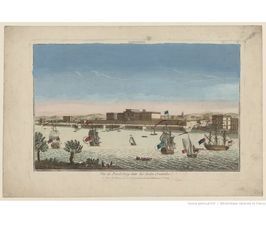Jour Fixe: Gauri Parasher (Heidelberg): Notes on the Administration of Justice to the Indians by the French (ca. 1765-1827)
Jour Fixe
- Date: Jun 13, 2016
- Time: 12:00 PM - 01:00 PM (Local Time Germany)
- Speaker: Gauri Parasher
- PhD Candidate, Heidelberg University
- Location: MPIeR
- Room: Z 01
